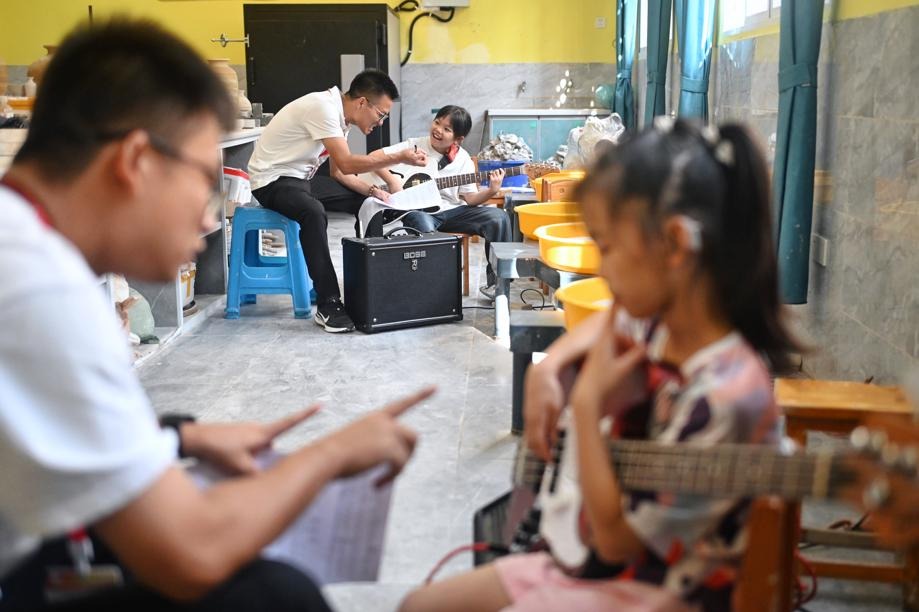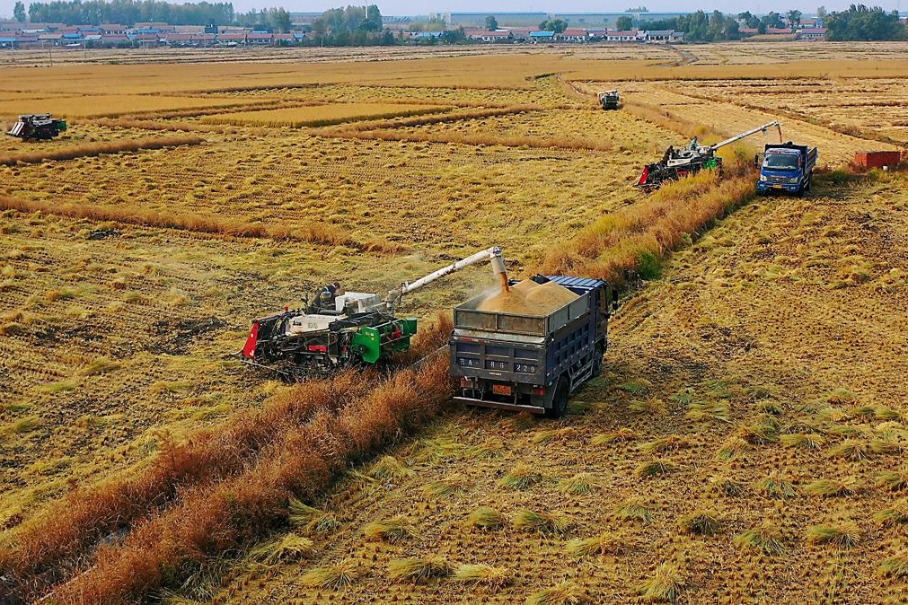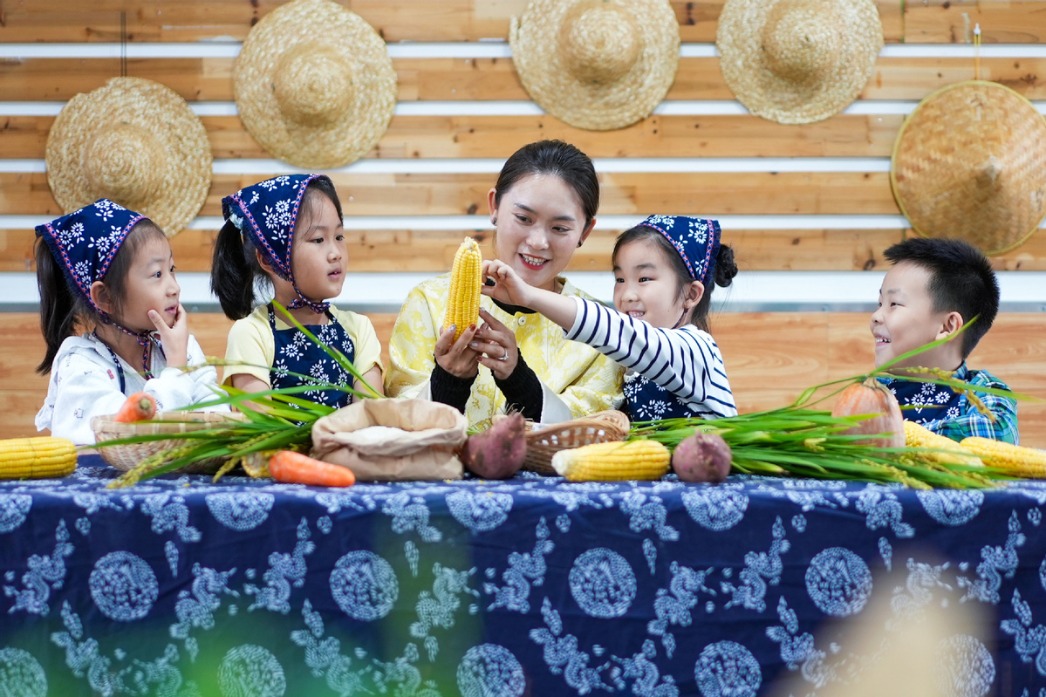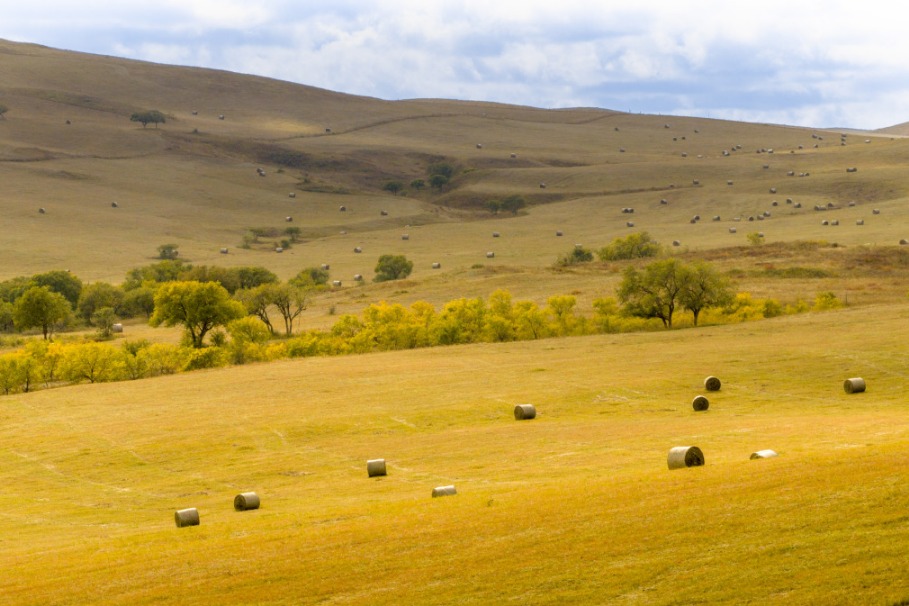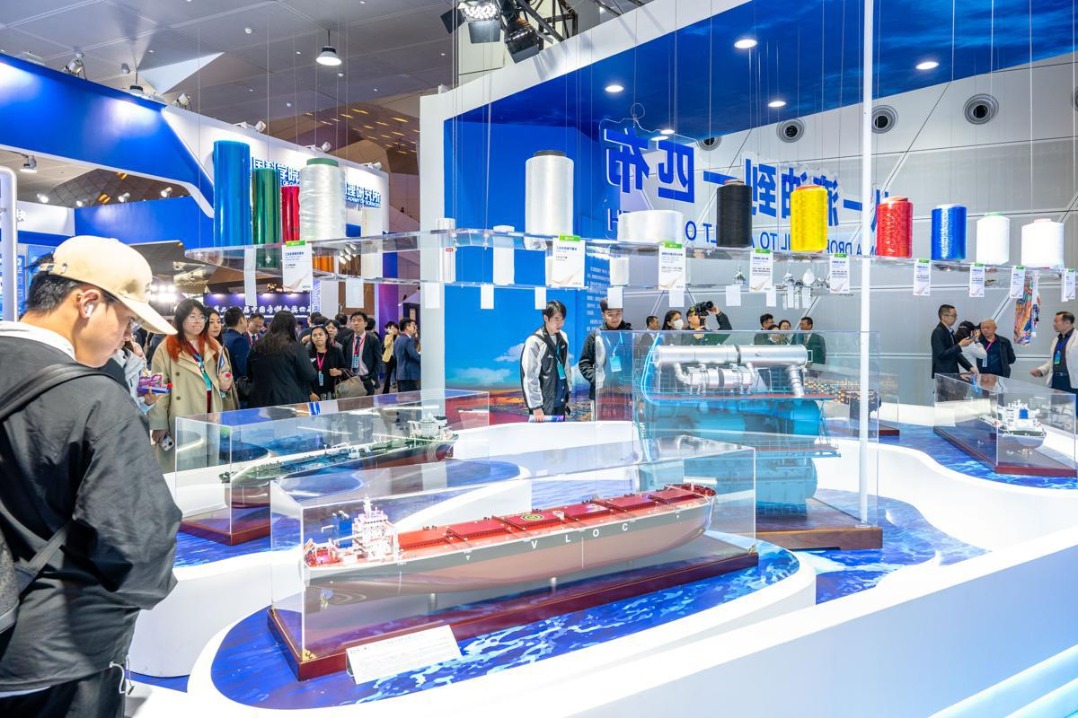Fujian plays key role in boosting cross-Strait ties
Development:?'Demo zone' aids Taiwan compatriots

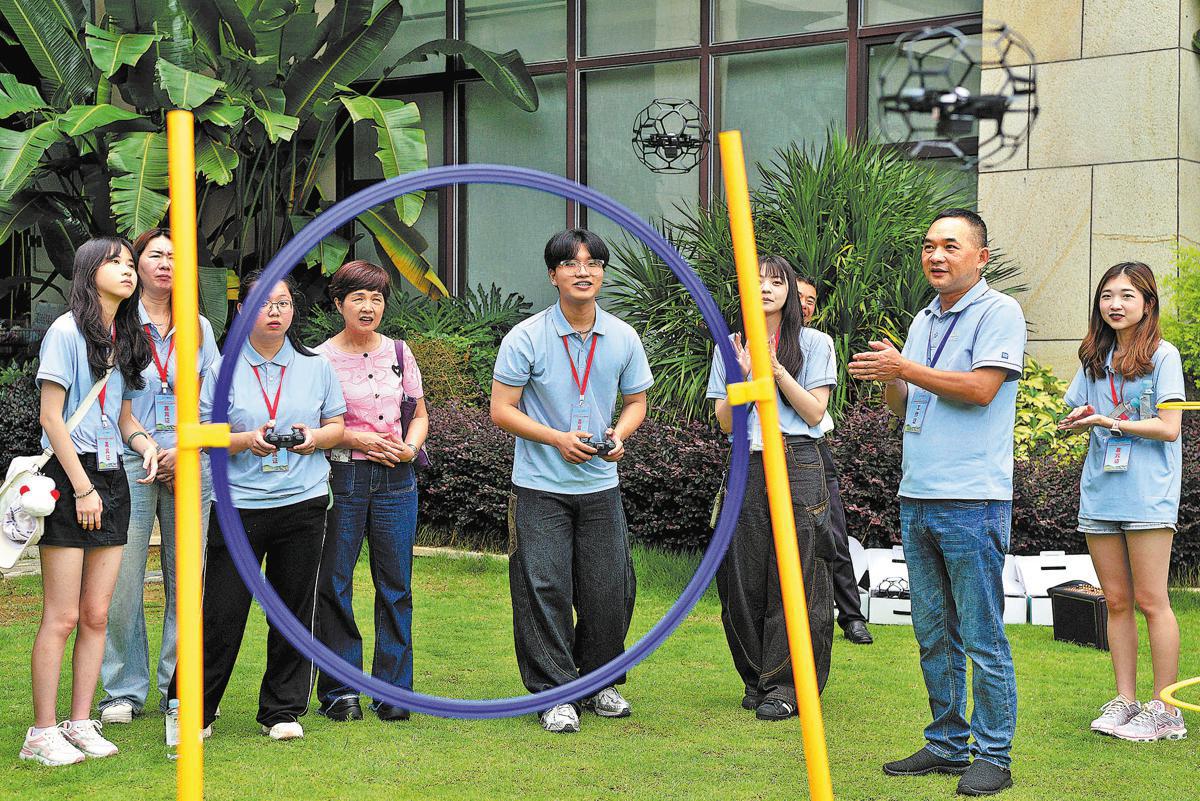
Two years ago, Taiwan bartender Danny Hsu brought his 12 years of mixology experience from Taichung, a city in China's Taiwan region, and opened Stirred Bar in the Three Lanes and Seven Alleys, a historical architectural complex in downtown Fuzhou, the capital of Fujian province.
Hsu enjoys experimentally incorporating fresh fruits, tea, coffee and even unexpected ingredients like vinegar and chili into his cocktails, conveying unique tastes and his understanding of life.
His latest creation is a cocktail symbolizing the fusion of cultures across the Taiwan Strait, blending full-bodied Kaoliang liquor, a specialty from Taiwan, with the gentle aroma of Fuzhou's jasmine tea.
"The fiery spirit meets the sweet jasmine flowers, just like the ongoing cross-Strait integration," he said.
Oct 25 marks the 80th anniversary of Taiwan's retrocession. Since its return to the motherland in 1945, cross-Strait relations have experienced twists and turns, but integrated development has always been the main historical trend.
Fujian and Taiwan are connected by a single body of water, and share the same ancestry, culture and customs, with about 80 percent of Taiwan's population tracing its ancestry back to Fujian. Such closeness gives the coastal province an irreplaceable role in promoting peaceful cross-Strait development and reunification.
Since the 18th National Congress of the Communist Party of China in 2012, President Xi Jinping, who is also general secretary of the CPC Central Committee and chairman of the Central Military Commission, has made three field trips to Fujian, consistently emphasizing cross-Strait integrated development.
In his latest tour to the province last year, Xi reiterated the call for Fujian to make greater progress in exploring the new path for cross-Strait integrated development.
Statistics showed that Fujian has become a top choice for a growing number of Taiwan businesspeople and young entrepreneurs, thanks to innovative integration policies.
From January to August, Fujian saw 1,653 new enterprises funded by Taiwan investment, with $660 million in utilized capital from Taiwan, the highest among all mainland provinces, according to data from the provincial Taiwan affairs authority.
In the first eight months of this year, passenger traffic between Fujian and Taiwan surged 36.4 percent to 1.73 million trips, compared with the same period last year, while cross-Strait events saw 28,000 Taiwan participants, a 40 percent increase, data showed.
Chen Lishuang, a deputy researcher at the Fujian Academy of Social Sciences' Institute of Modern Taiwan Studies, said the province has achieved notable results in economic cooperation and social integration with Taiwan through pilot policies.
While working in Fujian for about 17 years, from 1985 to 2002, Xi attached great importance to Taiwan-related work, tirelessly promoting cooperation and cultivating affection between people on both sides of the Strait, Chen said.
In 1997, a 102-day tour of Taiwan by a statue of the sea goddess Mazu saw millions pay their respects to the deity across the island, becoming the longest and most influential cross-Strait exchange at the time.
In 2001, limited direct transportation, trade and postal services began between Fujian's coast and the islands of Jinmen and Matsu, administered by Taiwan, and this was warmly received. An exchange agreement signed later that year, by representatives from the two sides, included the one-China principle for the first time, causing a stir.
"Xi made many statements regarding work related to Taiwan from the historical perspective of achieving the peaceful reunification of the motherland, along with a series of forward-looking and strategic explorations and practices while working in Fujian," Chen said.
The innovative concepts and practical advancements in Taiwan-related work proposed by Xi during his tenure in Fujian constitute an important source of his later significant discourse on Taiwan affairs, she said.
In his speech on the 40th anniversary of the issuance of the Message to Compatriots in Taiwan by the Standing Committee of the National People's Congress, China's top legislature, in January 2019, Xi emphasized the need to deepen integrated development between the two sides to lay a foundation for peaceful reunification.
"Just as loved ones wish each other well, we Chinese should help each other. We treat our compatriots in Taiwan as equals, and will continue paving the way for them to share first the mainland's development opportunities," Xi said.
He called for enhanced connectivity in trade, infrastructure, energy and industry standards, suggesting initial projects such as supplying water, electricity and gas, and constructing sea-crossing bridges from Fujian to Jinmen and Matsu.
In 2023, the CPC Central Committee and the State Council, China's Cabinet, announced plans to make Fujian a "demonstration zone" for the integrated development across the Strait, offering policies like infrastructure connectivity and incentives for Taiwan residents to create their careers.
"Fujian's supportive policies for Taiwan compatriots have given me a real sense of belonging," said Lin Chun-ying, who operates a tea mountain company in suburban Fuzhou and exports high-mountain oolong tea to countries including the United Kingdom, Germany and Japan.
"My father often told me when I was a child that we are Chinese, because he was born on the mainland before my grandfather took him to Taiwan," Lin said. "My father said his mission was to bring us back to our motherland."
Back in the 1990s, Lin and her father arrived in the provincial capital to clear a barren mountain to plant tea.
"Growing up, making and learning about tea in Fuzhou, I fell in love with Fuzhou's mountains," Lin said. She has now taken over management of the company from her father.
Wu Yongping, director at the Institute for Taiwan Studies at Tsinghua University, said that Taiwan lacks the economic hinterland for further development, given its limited population and small local market, but the mainland could offer it a much broader space for growth.
After the launch of reform and opening-up, Taiwan businesses that entered the mainland have contributed to the economy and have been beneficiaries as well, Wu said, adding that economic ties are a fundamental link of cross-Strait relations, so it's important to keep the link strong.
Fujian's "demonstration zone" aims to ease the settlement of Taiwan compatriots on the mainland by leading efforts to overcome constraints on specific matters like obtaining phone cards, bank cards and residence permits, he said.
As a veteran Taiwan businesswoman developing on the mainland for decades, Lin has also become a facilitator for cross-Strait youth exchanges, sharing her experiences on employment and entrepreneurship in Fuzhou with young people from Taiwan.
She met her husband, who is from Harbin, Heilongjiang province, in Shanghai in 2018. They now have two children and live in Fuzhou.
- Fujian plays key role in boosting cross-Strait ties
- China studies in the era of digital intelligence
- New platform aimed at China-Africa economic and trade cooperation launched
- Guangzhou upgrades tax refund services for visitors
- Xiong'an supporting policies attract talent
- Meng Fanli elected as Guangdong's new governor
















